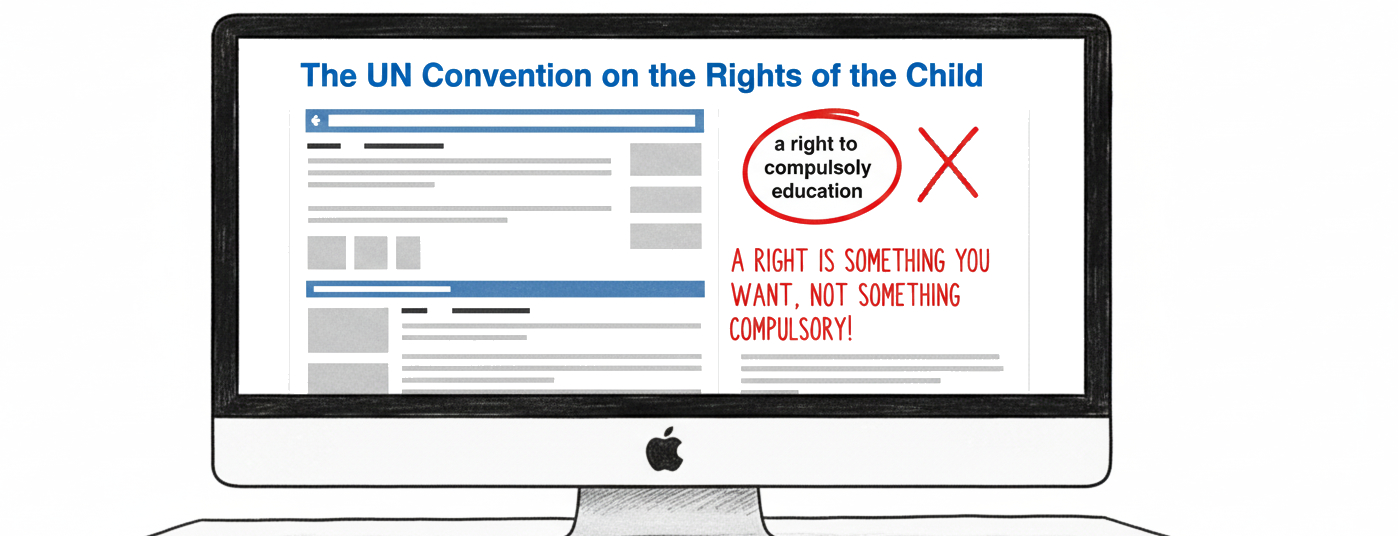“If you are using language decently you do not use the word ‘rights’ for things that are compulsory for the person. Rights are supposed to be something we want, not something we don’t want.”
– Sarah Fitz-Claridge
From the archives: The original post was posted on 10th April, 1995
I had written some criticism of the UN Convention on the Rights of the Child, describing it as a quite stunning hotchpotch of inconsistent, self-contradictory, incoherent ideas. It is no great triumph for children, that’s for sure, unless you redefine ‘rights’ to include the idea of compulsory ‘rights’ and coercion (the right to compulsory education?). The UN Convention on the Rights of the Child does nothing to reduce oppression and discrimination against children. It is no more free of paternalism than the world in general.
Bob wrote:
“I disagree with nearly everything Sarah offers. The UN Convention is a formidable instrument for the welfare of children, especially because it requires compulsory education. (I am not interested in arguing the desirability of compulsory education. The evidence is so obvious and so well known that if we disagree it cannot be about arguable facts.)”
What evidence are you referring to, and how is it relevant to the idea?
What do you see as the aim of education? And why?
How is this aim served by compulsion?
I’d like to know more about your idea of rights, and why some of these ‘rights’ are compulsory. How do you define “rights”, if you think that some of them must be forced upon their holders? Maybe you too have the ‘right’ to be forcibly put in an institution too (for your own good, of course)? Shall I offer my services to ‘help’ you achieve that ‘right’?
See also:
- We shall not coerce
- “Why not argue for Taking Children Seriously in terms of rights?”
- Noticing I am pushing against a blind spot
Sarah Fitz-Claridge, 1995, ‘Criticism of the UN Convention on the Rights of the Child’, https://takingchildrenseriously.com/criticism-of-the-un-convention-on-the-rights-of-the-child/
